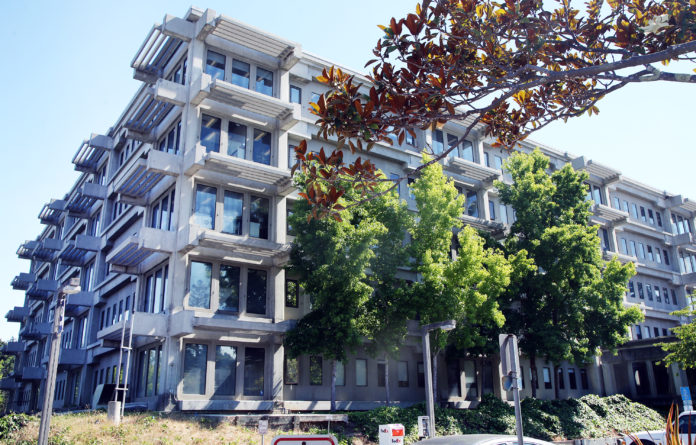If the Trump administration moves forward with plans to make sweeping cuts to health and human services as it hammers out its current budget, it will have far-reaching and profound impacts nationwide.
This includes to Santa Cruz County, where one-third of the people who receive Medi-Cal benefits could lose their coverage.
“We believe almost 30,000 people could be at risk of losing their Medi-Cal based on federal policy changes,” Assistant County Administrator Nicole Coburn told the Santa Cruz County Board of Supervisors Tuesday in a budget update after Gov. Gavin Newsom’s May revision. “That’s very significant.”
Coburn, along with County Budget Manager Marcus Pimentel, gave an update on the budget of the state and at the federal level, where the picture continues to evolve as lawmakers hammer out their respective finances. The supervisors will consider the entire budget in June.
While impending cuts—and the numbers that follow—will not be finalized until the fall, officials nationwide are girding themselves for drastic cuts to a vast swath of programs and services.
According to Pimentel, the state’s overall budget decreased this year by $375 million, not the $12 billion that was originally proposed in January. Still, since half the county’s budget is funded through state and federal sources, that reduction will likely mean reductions to programs such as CalFresh and Cal Works, among others.
“They help fund and protect our public health, support our vulnerable residents, and strengthen our local economy to maintain infrastructure,” Pimentel said. “We desperately rely on these funding sources.”
Some of the cuts are not theoretical.
Coburn says that the county has already lost a $20 million Building Resilient Infrastructure Grant that would have provided $20 million for wildfire risk reduction in six different geographical areas, and $420,000 to improve the Pajaro River Levee at the wastewater treatment plant.
The county’s health services department has lost more than $400,000 in grants, she said.
Further changes to Medi-Cal include more frequent eligibility checks, and a requirement to be employed to receive benefits.
In 2026, there are additional 22% cuts to education, health, housing and labor programs, and a 40% cut to the U.S. Department of Housing and Urban Development.
That year’s budget also eliminates programs such as Head Start, the Low Income Home Energy Assistance Program, the Community Development Block Grant, Preschool Development Block Grant and teen pregnancy prevention programs.
“In all, these could have very significant impacts here locally and this board has advocated against these changes, and we are continuing to message that to our federal delegation,” Coburn said.
Pimentel said that the Republican administration’s actions have thrown the state’s economy into a “period of instability,” leaving officials scrambling to change their projections.
Beginning in January, Trump is proposing to freeze Medi-Cal for undocumented adults and make further cuts to long-term care, dental care and in-home supportive services for that population.
Human Services Director Randy Morris called the current economic climate a “somber time,” and said that proposed cuts to rental assistance programs for low-income people could be devastating.
“Rental assistance is the hub of the service wheel of everything else we do to keep people off the streets and into housing or keep their housing,” he said, adding that the U.S. Department of Housing and Urban Development is “proposing to reduce rental assistance and other services by almost 50%.” If that happens, Morris added, the state’s ability to help the homeless population “in severe crisis.”
Another reduction is to the Supplemental Nutrition Assistance Program (SNAP)—also known as food stamps—which relies entirely on federal funding. A government proposal to require California to chip in 25%, Morris said, would cost the state an additional $6 billion.
Supervisor Monica Martinez said that the effects of the reductions on children, families and other vulnerable populations are the hardest to take.
“Hearing the potential cuts and the proposed cuts, it feels like a gut punch,” she said, adding that the current climate reminds her of the time before the Affordable Care Act passed and provided insurance to a wide swath of the population.
“We never hoped for a day when we would have to go back to that,” Martinez said. “We all need to work together to make sure that people aren’t falling through the cracks, and here at the county I feel very committed to doing our part.”













The “Big Beautiful Bill ont be beautiful for Santa Cruz County. Can the county go bankrupt like Stockton did?
CA has the money to cover it. Just start prioritizing legal CA residents.